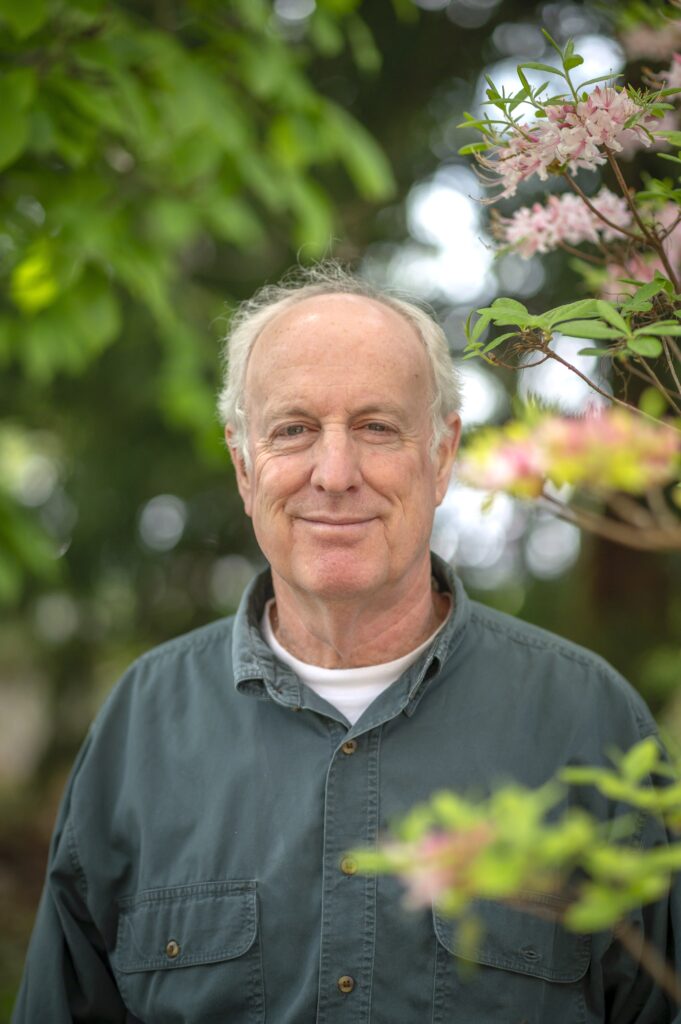Imagine if everyone who has a garden area, whether vast or tiny, decided to reduce or eliminate their lawn, and planted plants that are native to their part of the world. The result would be a greater sequestration of carbon by those plants, and increased support for all forms of life, including birds, insects, pollinators and other animals. In addition, we would use less water and our water would be protected from pollution from fertilizer, pesticides, herbicides and fungicides which are used to maintain lawns and non-native plants.
There is a way, and it’s called the Homegrown National Park®. In this program, meet Doug Tallamy, who is a co-founder of the Homegrown National Park. You can be part of this project and in the process become a conservationist, and part of the solution to climate change.
Play podcast

Photo credit – Rob Cardillo
Doug Tallamy is the T. A. Baker Professor of Agriculture in the Department of Entomology and Wildlife Ecology at the University of Delaware, where he has authored 106 research publications and has taught insect related courses for 41 years. Chief among his research goals is to better understand the many ways insects interact with plants and how such interactions determine the diversity of animal communities. His books include Bringing Nature Home, The Living Landscape, co-authored with Rick Darke, Nature’s Best Hope, a New York Times Best Seller, The Nature of Oaks, winner of the American Horticultural Society’s 2022 book award. In 2021 he cofounded Homegrown National Park with Michelle Alfandari. His awards include recognition from The Garden Writer’s Association, Audubon, The National Wildlife Federation, Allegheny College, The Garden Club of America and The American Horticultural Association.
Since it began in 2015, Mothering Earth has been bringing listeners informative programs on a broad range of environmental and sustainable living topics — from enjoying farmers markets to building rainwater collection systems, to growing organic vegetables in your own garden. You can enjoy the entire library of programs on Apple Podcasts, or any of the other podcasting platforms.
